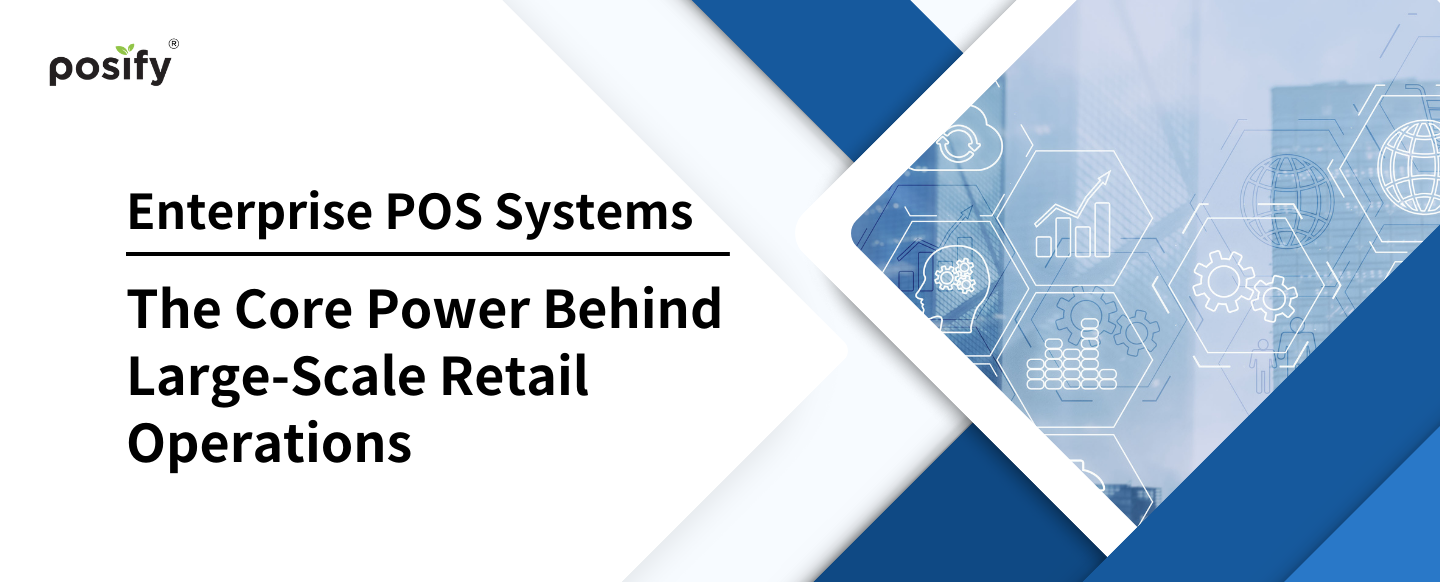Enterprise POS Systems: The Core Power Behind Large-Scale Retail Operations

As competition intensifies in Hong Kong’s retail industry, the ability to quickly adapt to market changes and improve operational efficiency has become the key to success. In today’s global wave of digitalization, traditional checkout methods can no longer meet customers’ expectations for shopping experiences. An enterprise-grade POS system is the core tool that helps retailers upgrade their entire operational model.
This article will analyze the importance of enterprise-grade POS systems for Hong Kong retailers across five dimensions, explaining their functions, advantages, application scenarios, and implementation recommendations—helping you gain a clearer direction when choosing the right POS solution.
What is an Enterprise-Grade POS System?
An enterprise-grade POS system is retail sales software designed specifically for large retailers, particularly those adopting omnichannel business strategies. In general, “enterprise” refers to large companies with annual revenue exceeding USD 1 billion. In the e-commerce sector, these enterprises typically generate annual revenues between USD 5 million and 100 million.
These large enterprises primarily use POS systems for payment processing, sales and transaction recording, while also optimizing various business workflows.
What Functions Does an Enterprise POS System Offer?
Enterprise-grade POS systems are more than just checkout tools—they are deeply integrated into the entire shopping process and hold access to critical data. In other words, the role of retail POS extends far beyond simply processing payments.
Here is an overview of the core functions of enterprise-grade POS systems:
1. Multi-Store Management
Large enterprises often operate multiple branches and require cross-store integrated management capabilities. A multi-store POS system provides exactly this support. With a centralized headquarters structure, enterprises can monitor operations across all branches. POS systems can also assign user permissions based on organizational hierarchy, improving management efficiency.
2. Inventory and Stock Control
The inventory management module of an enterprise POS system offers store-level visibility and control. It can display batch stock data, SKU (item-level) movement records, and track inbound and outbound logistics. The system also supports stock adjustments (e.g., adding or reducing quantities) while recording the reason for changes—ensuring accuracy and traceability.
3. Order and Checkout Processing
Enterprise POS software includes standard checkout and order processing features, supporting product scanning, multiple payment methods, and multi-language operations. It can automatically generate invoices, reprint or email e-receipts to customers, and include discounts, customer details, notes, and sales staff names. Integration with accounting software further streamlines bookkeeping and financial processes.
4. Sales Tracking and Reporting Analytics
Enterprise-grade POS systems can generate detailed sales reports categorized by hour, day, week, month, or even year—helping management quickly identify performance trends. Report features also include sales trend analysis (e.g., seasonal demand), forecasting, wasted product cost analysis, and inventory management recommendations.
5. Customer Relationship and Experience Management
By recording customer information and purchase history, POS systems help enterprises improve customer retention and deliver more personalized shopping experiences. This data is especially valuable for marketing, as it indicates which customers are likely to respond to promotions. Traditional loyalty cards are no longer necessary—the POS system can manage loyalty programs, gift cards, personalized discounts, and reward points.
How to Choose the Right Enterprise-Grade POS System?
In Hong Kong, there are many POS solution providers offering different features and pricing models. When selecting the right system, retailers should evaluate based on the following criteria:
1. System Stability and Support
The stability of a checkout system directly impacts customer service. Choosing a provider with local presence and 24/7 technical support is critical.
2. Scalability and Integration
Consider future business expansion, such as opening new branches or adding online sales channels. The system should easily integrate with e-commerce platforms and mobile payment tools.
3. User-Friendly Interface
Is the interface intuitive? Does it require lengthy staff training? The easier the system is to use, the faster it delivers results.
4. Security and Regulatory Compliance
Does it support Hong Kong’s tax system and meet government reporting requirements? Is data encrypted with proper backup mechanisms in place?
5. Cost-to-Benefit Ratio
Although enterprise-grade POS systems require larger investments, they enhance efficiency and reduce errors—bringing greater long-term cost-effectiveness.
Conclusion
For large-scale retailers operating across regions or countries, enterprise POS solutions provide a modular, highly configurable architecture with support for different tax systems, currencies, and languages. This ensures consistent operation as businesses expand into new markets. Advanced features like customer behavior analytics and sales forecasting allow marketing and operations teams to react quickly, fine-tune strategies, and drive revenue growth.
Take Posify’s enterprise POS solution as an example. We've helped numerous retail chains upgrade from legacy POS systems to modern, intelligent platforms. The result? Faster information flow between stores, real-time visibility at headquarters, optimized inventory planning, and smarter workforce deployment—all contributing to a more efficient and scalable retail operation.
In conclusion, for growing or already-scaled retail enterprises, enterprise POS systems are far more than just upgraded cash registers. They are the digital brains of retail operations. Choosing the right solution gives your business the speed, insights, and agility to thrive in a complex market. Posify is here to lead you into the future of smart retail—with the tools, technology, and support you need to succeed.





